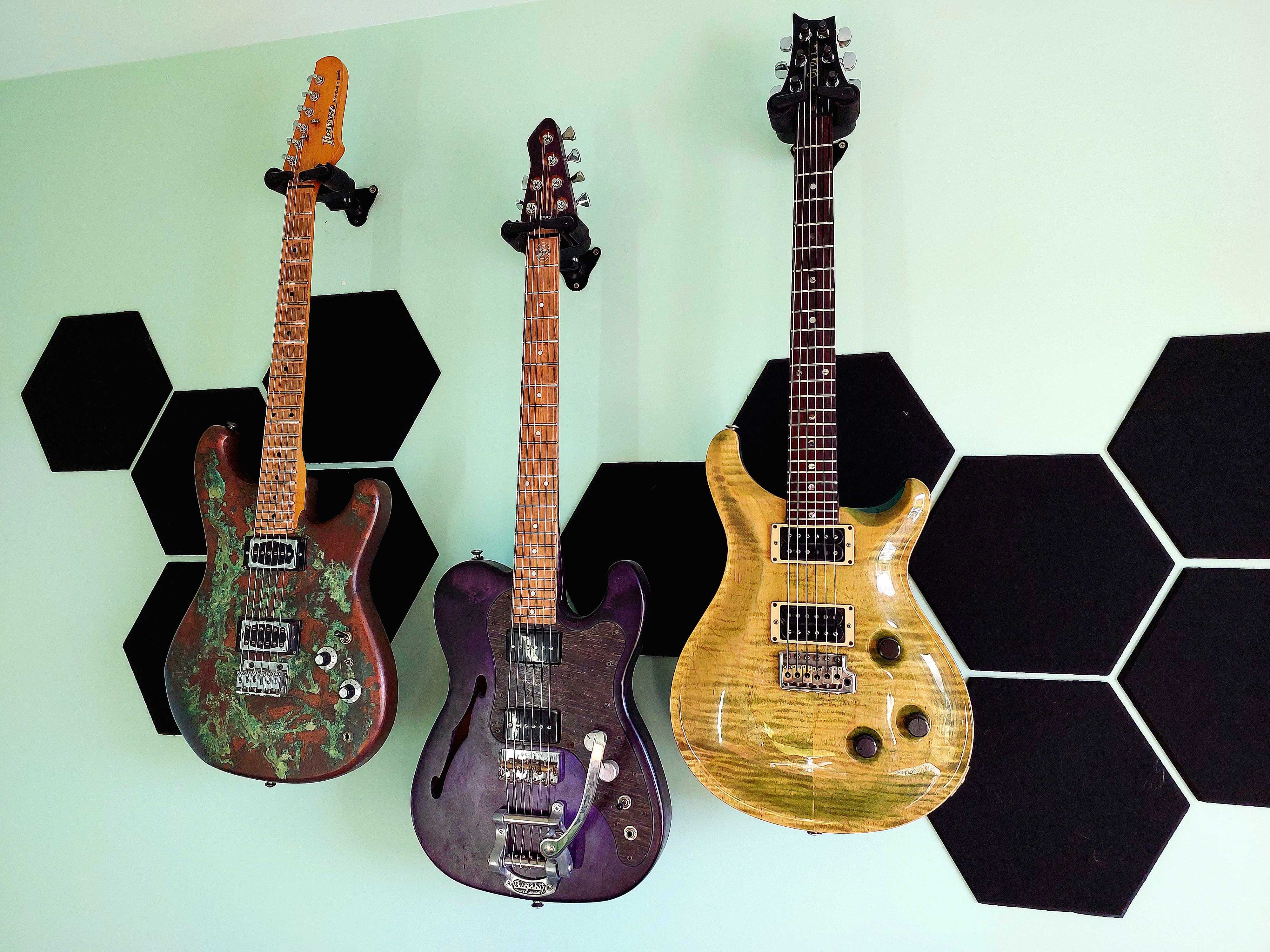

“The technology of plasma thrusters using metal as a fuel is a really exciting development” Awesome concept and the name Neumann Drive is pretty cool.


“The technology of plasma thrusters using metal as a fuel is a really exciting development” Awesome concept and the name Neumann Drive is pretty cool.


Yep, my old DD20 does everything you list except there’s no external expression pedal support. Cascading in and out of oscillation just by holding the in-built pedal is pretty easy once you get used to it, so that could be a budget friendly option if you’re willing to go used.


Have you considered a Boss DD500? It’s full stereo and the warp mode lets you blend into and out of infinite repeats by holding the on/off pedal, plus you can assign parameters to an external expression pedal. It has tails too.
Lovely instruments! I love thinlines for the resonance but have avoided full hollowbodies because of feedback issues, would love to try one of those. Do you find much difference in intonation between the two bridges? Here is my PRS - a 1993 CE24 faded from it’s original teal-black.



Yep, the only reason it isn’t happening for you is that the creator of kbin.social has temporarily broken federation to protect his server against DDOS attacks.


Yes absolutely, though I find it a difficult spectrum between pure conservationism vs ecology. I want to plant as many natives as possible, but perfect is the enemy of good, and ultimately I believe creating habitat and restoring a functional ecosystem takes precedence over trying to wind back the clock on colonisation.
I live in New Zealand and am in the process of creating a 35 hectare eco-community which includes 8 hectares set aside for wetland restoration and reforestation. There are existing trusts we could ally with for support, however most of them stipulate planting purely natives, which I don’t believe is practical. There’s no putting the genie back in the bottle, so to speak.
Here gorse bushes imported by Scottish settlers spread rampantly on any ungrazed land, and the reccommended approach is to poison them as fast as possible and plant natives in their stead. We’d rather not use pesticides, but there are other options. Gorse is very vast growing and horrendously thorny, but that can actually be a benefit - animals like rabbits don’t like to feed on it, so it can actually act as a nursery for young natives, and it requires full sun, so as soon as anything grows up from under it, it dies back.
Being able to step back and find ways for ecosystems to work together to restore themselves is the only cost effective/sustainable way.
I love the idea and genuinely feel like the purpose or obligation of intelligent life is to spread and escape the confines of a single planet. But the first step has to be a stable environment here. If we can’t maintain an ecology and atmosphere in literally the perfect conditions we’re adapted for we have no business messing with other planets. That’s not to say we shouldn’t research and explore, but we’re a long way from terraforming anything and Mars isn’t exactly an awesome place to live even under ideal circumstances . A stable space station that’s perminently habitable and self sufficient long-term is necessary before we can realistically consider further expansion. That would require us to have solved climate collapse and the mass extinction we’ve created which seems like a slim possibility at the moment.